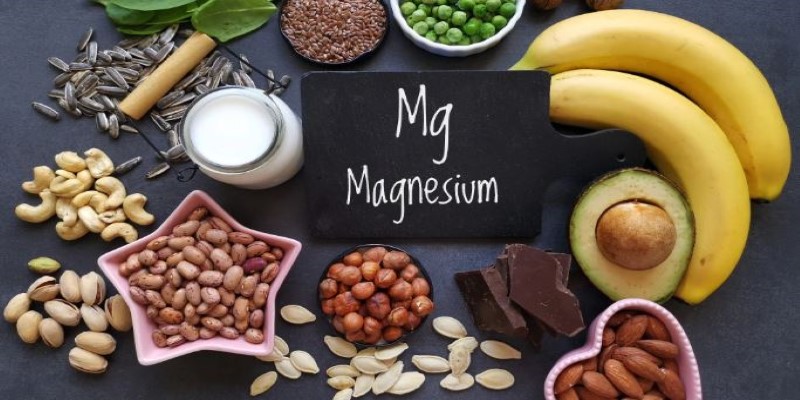Migraines are more than just a severe headache; they are a neurological condition that can be debilitating and disruptive. For many individuals, dietary choices play a significant role in either triggering or alleviating migraine symptoms. With the ongoing research and evolving understanding of migraine management, making informed diet modifications can be a powerful tool for relief.
In this article, we'll explore the latest insights into how specific dietary changes can help manage migraines, based on the most recent information available in 2024.
Understanding the Migraine-Diet Connection
Migraines are often associated with various triggers, and diet is a common factor. Certain foods and beverages can provoke migraine attacks in susceptible individuals. This connection between diet and migraines is rooted in the way certain substances in food can affect brain chemistry and overall health. While the precise mechanisms are complex and can vary from person to person, dietary triggers are well-documented and can include items like caffeine and aged cheeses.
Key Dietary Triggers to Avoid
One of the first steps in managing migraines through diet is identifying and avoiding common triggers. In 2024, research continues to highlight several key offenders. Foods high in tyramine, such as aged cheeses, processed meats, and fermented products, are frequently reported as triggers. Additionally, monosodium glutamate (MSG), commonly found in processed foods and some restaurant dishes, can exacerbate migraine symptoms.
Caffeine is another significant trigger. While moderate caffeine consumption might not affect everyone, excessive intake or sudden withdrawal can lead to migraine attacks. Similarly, alcohol, especially types like red varieties, is known to be a common trigger because of its impact on blood vessels and neurotransmitters.
Nutritional Adjustments for Migraine Prevention
Making dietary changes to manage migraines involves not just avoiding triggers but also including beneficial nutrients. Recent studies emphasize the importance of a balanced diet rich in specific nutrients that may help reduce migraine frequency and severity. Magnesium, for example, plays a crucial role in neuromuscular function and has been shown to reduce migraine frequency in some individuals. Foods rich in magnesium include leafy greens, nuts, and whole grains.

Omega-3 fatty acids, found in fatty fish like salmon and flaxseeds, also have anti-inflammatory properties that can be beneficial for migraine sufferers. These nutrients help modulate brain function and reduce inflammation, potentially mitigating the severity of migraine attacks. Another important aspect is maintaining a regular eating schedule. Irregular meal times or skipping meals can lead to fluctuations in blood sugar levels, which may trigger migraines.
Strategies for Successful Dietary Transformation
Making dietary changes to manage migraines involves a strategic approach. Here are some practical tips to help you implement these changes effectively:
Keep a Food Diary
One of the most effective tools for identifying migraine triggers is a food diary. By recording what you eat and drink along with your migraine occurrences, you can spot patterns and pinpoint potential triggers. This detailed record helps you understand which foods might be contributing to your symptoms. Note not only the foods you consume but also the timing of your migraines, as this can provide further insights.
Gradual Elimination and Reintroduction
If you suspect certain foods are triggering your migraines, consider a gradual elimination diet. Start by removing potential triggers one at a time from your diet. This process can help you identify specific problem foods without overwhelming your system. Once youve removed a suspected trigger, monitor your migraine frequency and severity.
Focus on a Balanced Diet
Including a balanced diet is crucial for migraine management. Aim for a diet rich in fruits, vegetables, whole grains, and lean proteins. Foods high in fiber and low in processed sugars and fats are beneficial. For instance, leafy greens, nuts, and seeds are good sources of magnesium, which is known to help with migraine prevention. Similarly, omega-3 fatty acids found in fish such as salmon can have anti-inflammatory effects that may benefit those with migraines.
Stay Hydrated
Dehydration is a common migraine trigger. Ensuring adequate fluid intake can help prevent dehydration-related migraines. Aim to drink plenty of water throughout the day, and consider including hydrating foods like cucumbers and watermelon in your diet. Monitoring your water intake and adjusting based on activity level and climate can also be beneficial.
Regular Meal Times
Irregular eating patterns can also trigger migraines. Skipping meals or fasting for extended periods can lead to fluctuations in blood sugar levels, which may trigger headaches. Establishing regular meal times and adding healthy snacks can help maintain stable blood sugar levels. Try to eat balanced meals at consistent intervals, and include protein-rich snacks if needed to keep energy levels steady.
Experiment with Supplements
Some people find that dietary supplements can help manage migraines. Supplements such as magnesium, riboflavin (vitamin B2), and coenzyme Q10 have been studied for their potential benefits in reducing migraine frequency. However, it's important to consult with a healthcare professional before starting any new supplements to ensure they are appropriate for your individual needs
Mind Your Caffeine Intake

Caffeines effect on migraines can be a double-edged sword. While moderate caffeine consumption might provide relief for some individuals, excessive caffeine or abrupt withdrawal can be problematic. If you consume caffeine regularly, aim to do so in moderation and avoid large fluctuations in intake. Gradually reducing caffeine if you suspect its a trigger can help minimize withdrawal symptoms and assess its impact on your migraines.
Be Cautious with Artificial Additives
Artificial additives such as artificial sweeteners and food colorings have been reported as migraine triggers for some people. Reducing or eliminating these from your diet may help alleviate symptoms. Opt for natural sweeteners and whole, unprocessed foods when possible to avoid these potential triggers.
Seek Professional Guidance
While making dietary changes on your own can be effective, consulting with a healthcare provider or a registered dietitian can provide additional support. These professionals can help tailor a diet plan to your specific needs, offer advice on managing food sensitivities, and ensure that youre receiving adequate nutrition while making dietary adjustments.
Be Patient and Persistent
Dietary modifications for migraine management require time and persistence. As your body adjusts to new dietary patterns, it may take several weeks to notice significant changes. Consistency is key, and it's important to stay patient and committed to your dietary plan. Regular follow-ups with a healthcare provider can also help track progress and make necessary adjustments.
Conclusion
Dietary modifications can play a crucial role in managing migraines and improving quality of life. By understanding and avoiding common triggers, adding beneficial nutrients, staying hydrated, and considering supplements, individuals can take proactive steps to manage their migraines more effectively.
As always, personalization and professional guidance are key in developing a diet that works for you. If you're struggling with migraines, consulting with a healthcare provider or a registered dietitian can help tailor these recommendations to your specific needs and ensure you're making the best choices for your health.







